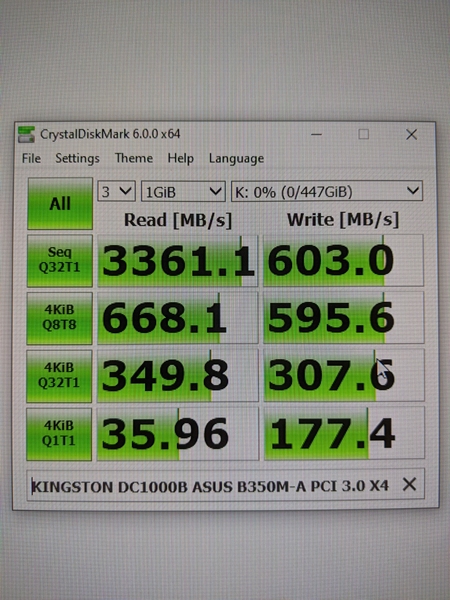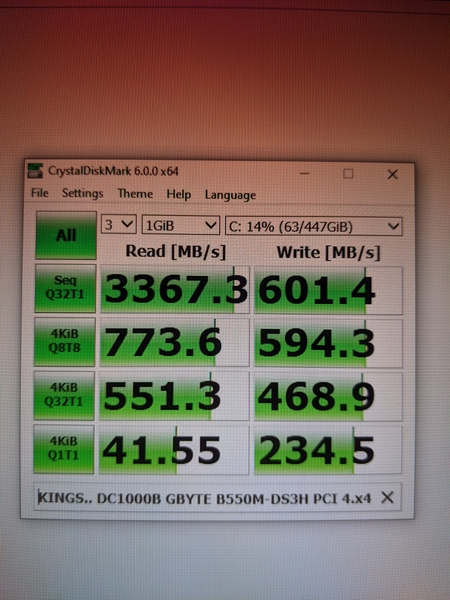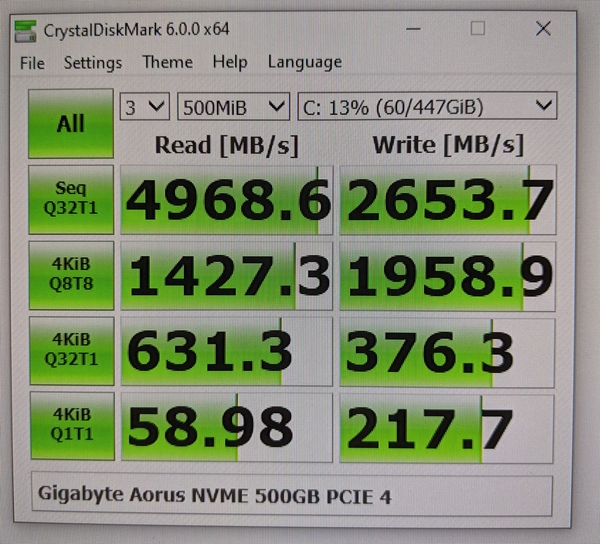I am looking at these two NVME SSD:
Kingston DC1000B 480GB PCI Express 3.0 x4 M.2 2280
part: SEDC1000BM8/480G
and
Gigabyte AORUS 500GB, NVMe Gen4
part: GP-ASM2NE6500GTTD
Which one would be more reliable in terms of keeping it's performance after many writes ?
I want to use them in computers that will be on all the time, running MySQL databases.
Database is around 20 GB and would be written many times, maybe 10 GB of new writes/updates a day.
Kingston says this nvme is made for enterprise environment so that is a plus, Gigabyte on the other hand says it has wear leveling and other technologies that might help with reliability in my case.
Performance specs are better for the Gigabyte, but I assume the Kingston slower write has to do with being optimize for stability over time. 500MB/s should be still OK for me.
If it matters, I plan to use them with ASUS PRIME B550M-K motherboards with Ryzen CPUs, one is Ryzen™ 7 3700X, another is Ryzen 5 3600. And 64GB DDR 4 memory.
It is not critical if they fail and I lose all the data, but I don't want them to be wrong for this setup and constantly fail every 1-2 months.
I have some SATA Kingstons that show they are at "10%" lifespan left, different use (not database), but still, I want to avoid that.
Both cost around 120-130 USD here. Which one to chose ? If there is a more solid choice, I am considering looking at others.
EDIT: Kingston also seems to have ram cache chips (from what I can tell), and I see the same PHISON chip/controller.
Kingston: img1 img2
Kingston DC1000B 480GB PCI Express 3.0 x4 M.2 2280
part: SEDC1000BM8/480G
and
Gigabyte AORUS 500GB, NVMe Gen4
part: GP-ASM2NE6500GTTD
Which one would be more reliable in terms of keeping it's performance after many writes ?
I want to use them in computers that will be on all the time, running MySQL databases.
Database is around 20 GB and would be written many times, maybe 10 GB of new writes/updates a day.
Kingston says this nvme is made for enterprise environment so that is a plus, Gigabyte on the other hand says it has wear leveling and other technologies that might help with reliability in my case.
Performance specs are better for the Gigabyte, but I assume the Kingston slower write has to do with being optimize for stability over time. 500MB/s should be still OK for me.
If it matters, I plan to use them with ASUS PRIME B550M-K motherboards with Ryzen CPUs, one is Ryzen™ 7 3700X, another is Ryzen 5 3600. And 64GB DDR 4 memory.
It is not critical if they fail and I lose all the data, but I don't want them to be wrong for this setup and constantly fail every 1-2 months.
I have some SATA Kingstons that show they are at "10%" lifespan left, different use (not database), but still, I want to avoid that.
Both cost around 120-130 USD here. Which one to chose ? If there is a more solid choice, I am considering looking at others.
EDIT: Kingston also seems to have ram cache chips (from what I can tell), and I see the same PHISON chip/controller.
Kingston: img1 img2
Last edited:




 ...
...